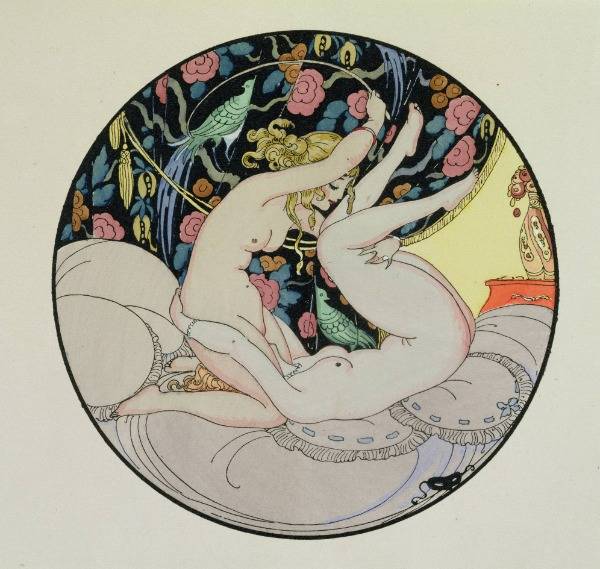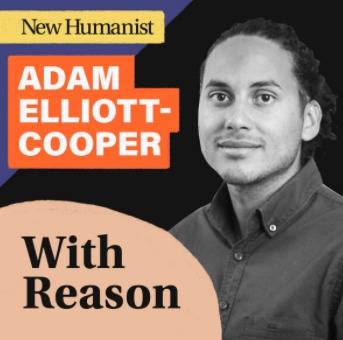
You know the feeling. You pass the window of a book store, or switch on a political talk show, and are overwhelmed by an irritating sensation of deja vu. Haven’t you heard these ideas before? Behind the shiny new designs, aren’t these latest non-fiction hardbacks peddling the same basic theories, tweaked to entice a fresh audience? It can be difficult to gauge how our own personal frustration relates to the broader reality. On Sunday, HowTheLightGetsIn London confronted this perception head on. HTLGI is a festival dedicated to "big ideas", bringing together academics, scientists, creatives and "thought leaders" of all stripes. They have more than a vested interest, therefore, in answering the question. Is our intellectual climate in Britain stagnating? If so, how do we encourage new and original thinking?
The event brought together speakers from the diverse fields of philosophy, theoretical physics and journalism to chew over the dilemma. While the term “Renaissance Man” didn’t pass the lips of any of the speakers (although they might have updated it to “Renaissance person”), the figure of the free-thinking polymath was a definite spectre in the room. John Ellis, the renowned theoretical particle physicist, called for a more meaningful exchange of ideas and collaboration between disciplines. He pointed out that the experimental techniques he uses to test his ideas within the field of fundamental physics could fruitfully be applied to climate science. While it’s possible, he said, to get small pots of money for this kind of work, securing funding for such projects in the longer term is disappointingly difficult.
"Interdisciplinarity" is a term that is readily bandied about these days, but as the philosopher Sophie Scott-Brown remarked, we "need to pay more attention to what it actually means." She said this could be anything from bringing academics from different departments together to “sit around the same table” to “melting down the barriers” between disciplines. She is strongly in favour of the latter, envisioning a transformative shift towards a more creative, “inquiry-led” approach. Taking up John Ellis’ point, dynamic and complex problems like the climate crisis, or the future of global security, could be tackled with the inventiveness required through putting more emphasis on bringing people together on the basis of what knowledge and skills they might bring to the challenge, whatever their field.
But this isn't only a question of transforming our approach to learning and research. The trend towards specialisation is tightly linked today with the pressure on universities to adopt business practices and become increasingly self-sufficient, in the light of severe government cuts. The incentive to meet targets, the pressure to secure funding, and the fierce competition for students all serve to create an environment in which, in Scott-Brown's words, ideas are pumped out as "products". Meanwhile, the kind of open-ended inquiry that so often produces new discoveries is hampered by the need to justify the research in advance. “Most of my colleagues have to be 99 per cent sure about what they’re writing before putting forward a funding application.”
It's interesting that the most concrete idea came from the non-academic on the panel. The journalist David Aaronovitch made an impassioned plea to “abolish the A-level”, arguing that this would change the culture of learning that runs from school into universities. He claimed that every single British government had done a report on the A-level and found it to be wanting, but that there was a stubborn belief that specialisation is what makes the English system exceptional. He advocated switching to the International Baccalaureate (IB). The United States has the largest number of IB programmes, in both private and state schools, and he suggested that we take some lessons from the American approach, where university degrees are also four years, instead of three, and place more emphasis on students studying a wider breadth of subjects.
Aaronovitch disagreed that our society is suffering from a lack of new big ideas, however. Following the two "isms" of the 20th century (communism and fascism), we now have a distrust of them which is perfectly healthy, he argued. We can see this plainly from the much more recent example of Prime Minister Truss’ mini-budget, which is deeply “ideological” and has been a "failure". With big questions like how do we get to net zero, he said, "I'm happy to be more pragmatic."
Whether in pursuit of bold new theories, or working on practical solutions, there is hope when it comes to bringing people together. John Ellis praised the inclusion of more women and people of colour in the research community, and the way in which technology was creating a more level playing field when it came to participating in scientific debate. “And here I am,” he joked, “in a philosophy debate, while two other debates are going on about my own field of science.” HowTheLightGetsIn is one of the spaces where philosophers and scientists in particular benefit from coming together. “This is us forming the new society,” Scott-Brown said.
But the festival happens twice a year, a drop in the ocean. For the spirit of a New Renaissance to take hold, changes would be needed on many levels: cultural, political and economic. It's certain that we need creativity and invention in order to meet the confluence of crises facing Britain today. While our current Prime Minister may indeed have outlined a consistent ideological position, her ideas are explicitly rooted in Thatcherism. It seems likely that a failure to generate new big ideas appropriate to the particular challenges Britain faces today will only lead to a dangerous re-hashing of the old. We know that our intellectual climate is fed by many sources, but the health of the academy, along with our education system as a whole, is surely the bedrock of the edifice. Interdisciplinarity will be key to renewal, but any transformation will need to start by treating universities not as businesses within the higher education market, but as spaces of learning, sharing and discovery.
More details on HowTheLightGetsIn, the world's largest ideas and music festival, can be found here.
For those of you who couldn't be with us in person, all the debates and talks from the festival will gradually be released online in the coming months on the Institute of Art and Ideas online platform, IAI.TV.

